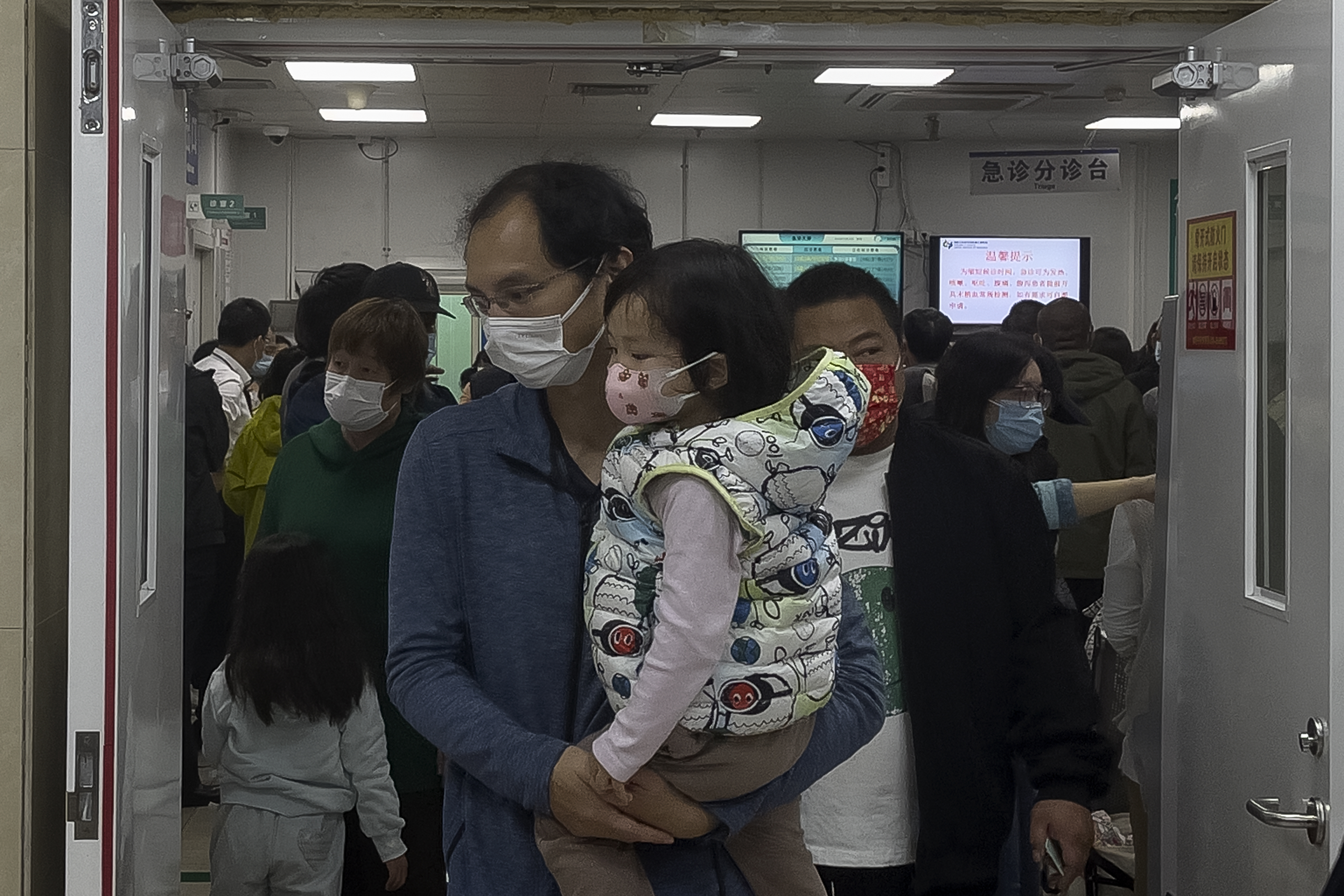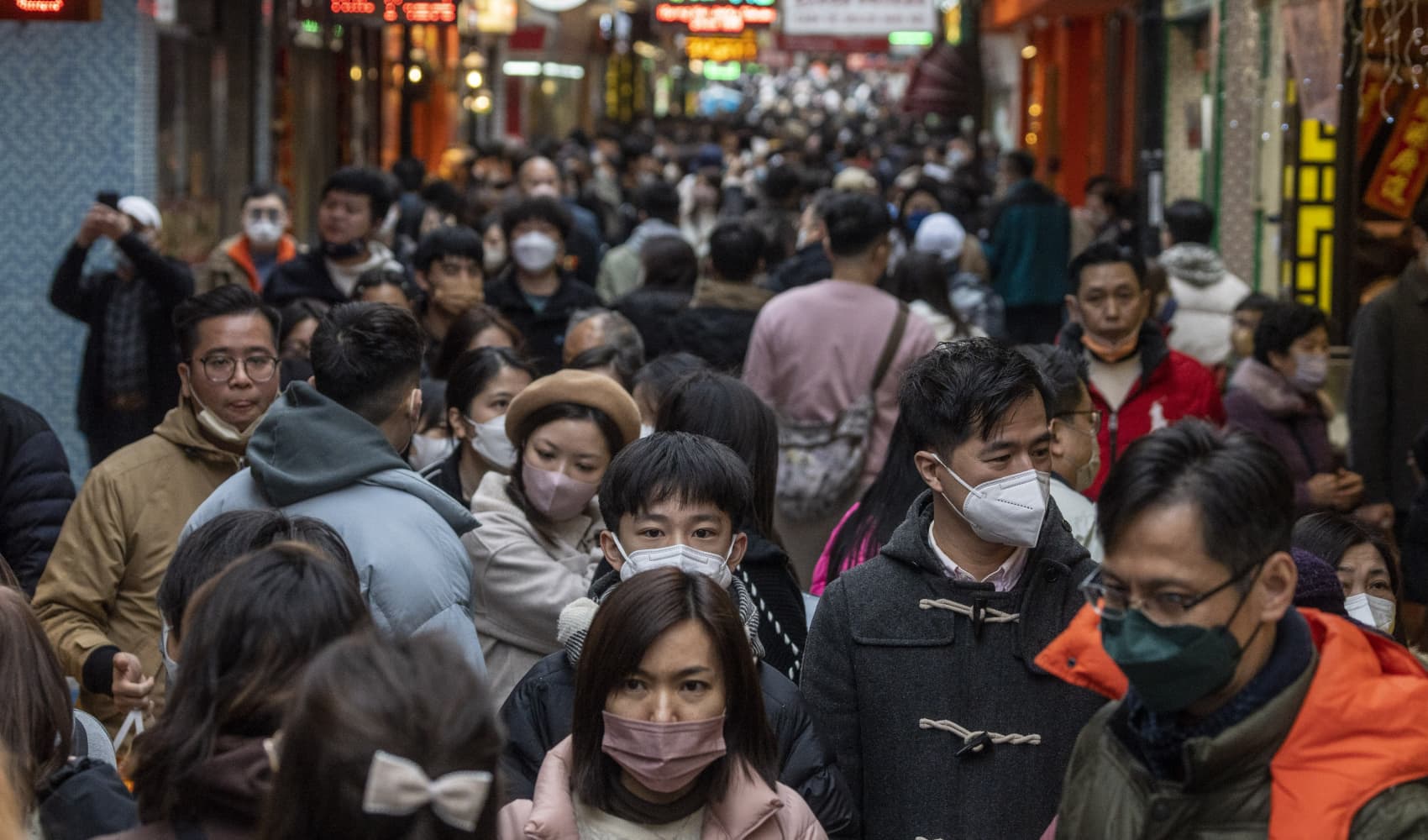
A surge in respiratory illnesses across China has drawn the attention of the World Health Organization, but should we be worried about a similar outbreak here in the U.S.?
China's health ministry has said the "unexplained pneumonia" is caused by the flu and other known pathogens and not by a novel virus. In other words, the recent clusters of respiratory infections are likely being caused by an overlap of common viruses like the flu, RSV and mycoplasma pneumoniae.
The WHO last week requested that China provide information about the spike in respiratory illnesses and clusters of pneumonia in children, as mentioned by several media reports and a global infectious disease monitoring service. The emergence of new flu strains or other viruses capable of triggering pandemics typically starts with undiagnosed clusters of respiratory illness. Both SARS and COVID-19 were first reported as unusual types of pneumonia.
But Dr. Ashish Jha, the former White House COVID-19 response coordinator, said on social media over Thanksgiving weekend that he isn't particularly worried.
Get Boston local news, weather forecasts, lifestyle and entertainment stories to your inbox. Sign up for NBC Boston’s newsletters.
"Remember -- we see 'unexplained' outbreaks with some frequency," he said. "They usually become explained pretty quickly. I suspect this one will too."
NBC10 Boston reached out to a trio of respected local epidemiologists to get their thoughts on whether the U.S. and in particular New England should expect to see a similar increase in respiratory illnesses. For the most part, they seemed to echo Jha's take.
Dr. Shira Doron of Tufts Medical Center wrote about this phenomenon in The Boston Globe last year, explaining that as a result of all the COVID-control measures that were put in place during the pandemic, there was less immunity and thus a spike in respiratory illnesses in the Boston area last winter.
"Sounds like exactly what is going on in China, although we must always stay alert for emerging pathogens," she said in an email this week.
But Doron said it's hard to say if we saw enough respiratory infection in the Boston area last year to prevent a surge in hospitalizations this year.
"There's no formula to calculate that," she said. "What we do know is that the measures taken to prevent COVID-19 transmission affected transmission of other organisms, and that causes a change in community immunity that results in a lot of simultaneous illness. This is what we saw in the US last year and what we expected to see in China this year."
Brigham and Women's Hospital's Dr. Daniel Kuritzkes said he agrees with Doron's assessment.
"I suspect we're seeing routine respiratory infections re-emerging in China that were deferred due to the lockdown and now are surging," he said.
Dr. David Hamer of Boston Medical Center said he was initially "very concerned" about what's happening in China when he read about it late last week.
"It looks like it may be a surge in several respiratory pathogens, including Mycoplasma pneumoniae, in children who may have become susceptible as a result of the lockdowns and greatly enhanced mask use that occurred in China during the pandemic. Similar surges of respiratory pathogens have been seen in other countries including the USA."
Hamer added that he finds it odd that the Chinese government has mainly blamed the spike in illnesses on Mycoplasma pneumoniae. But the good news is that this is easily treatable with several commonly available antibiotics.
The Associated Press contributed to this report.



